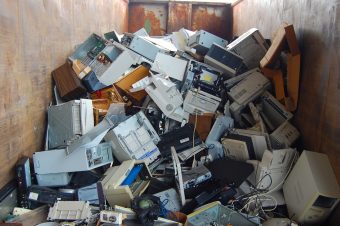
Representatives from across Latin America will gather this week to share their experiences of participating in UNIDO’s first-ever regional project on e-waste management.
Since its launch in Quito in March 2018, the Global Environment Facility (GEF) funded project has assisted 13 countries with tackling e-waste challenges in the region. From strengthening national e-waste management initiatives, to upgrading e-waste dismantling and recycling facilities, the project has enhanced regional cooperation and generated important data for decision making in this area.
Tools developed under the project include a guide for the media on communicating on e-waste and the Regional E-Waste Monitor for Latin-America report. Produced by the Sustainable Cycles (SCYCLE) Programme, this report offers the UN’s first assessment of the region’s e-waste generation, its legislation and its recycling infrastructure.
In 2022, 62 million tons of e-waste was generated globally, with around 22 per cent documented as formally collected and recycled in an environmentally sound manner, versus just tree per cent in the 13 project countries. Given the complexities around handling e-waste and the potential health and environmental risks posed by its improper disposal, this represents a serious risk for the region.
More:
- NEW EU RULES TO IMPROVE URBAN WASTEWATER TREATMENT AND REUSE
- UP TO 11 MILLION TONS OF PLASTIC AT THE BOTTOM OF THE OCEAN
- EIGHT WAYS TO OVERCOME THE WASTE POLLUTION CRISIS
From 21-23 May, technical and political representatives from participating countries will meet with international experts in Panama City to showcase their achievements, innovations, and lessons learnt in managing harmful Persistent Organic Pollutants (POPs) in electrical and electronic waste.
Strong policies and legal frameworks are essential for the success of interventions in this area. Under the project, existing regulations have been improved, and new regulations have been developed in nine of the participating countries.
Further, over 200 awareness-raising activities have been carried out, reaching around 15,000 people, with strong participation from the academic sector through the involvement of universities in Chile, Costa Rica, Ecuador, El Salvador, Panama and Venezuela. Almost 5,000 people have received training and around 700,000 pieces of electronic and electrical equipment have been analysed, with over 230 metric tons of equipment sent for environmentally sound management.
Source: UNIDO

